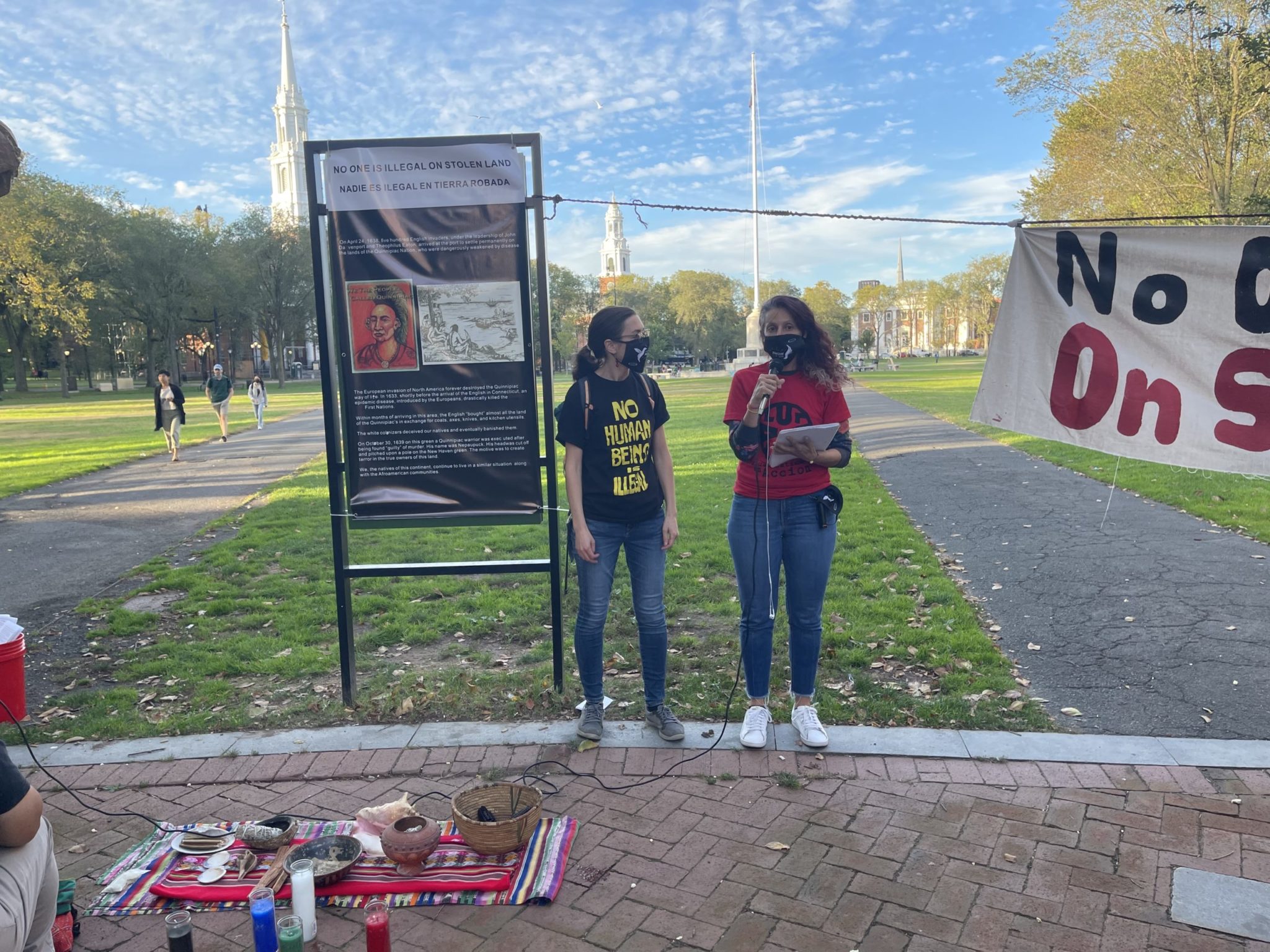Community protest on New Haven Green celebrates Indigenous people
Community members gathered on the New Haven Green on Tuesday to celebrate indigenous culture and call on Congress to welcome migrants.

Brian Zhang Photo
On Tuesday, community voices rang out across the Green as New Haveners led a ceremony celebrating Indigenous culture and calling on Congress to welcome migrants.
The event — which was hosted by Black and Brown United in Action alongside Unidad Latina en Acción, or ULA — featured speaker presentations and dance performances. It culminated in a march to Representative Rosa DeLauro’s (D-CT) office — with demonstrators holding signs in opposition to antiimmigration sentiment — as well as the unveiling of a sculpture honoring Nepaupuck, a Quinnipiac warrior who was executed by colonists in 1639 on the same site as Tuesday’s protest.
“We’re more than dishwashers. We’re more than cleaners. We’re more than administrative staff,” said Catherine John, one of the event’s organizers and a leader of Black and Brown United in Action.
John Jairo Lugo, one of the event’s lead organizers, spoke to the lack of Indigenous curriculum in Elm City’s current education system — which he said capitalized on a colonizer perspective and left out Native history.
Connecticut has become the first state to require that public schools offer ethnic studies curriculum — which will include topics such as the diversity of Latino cultures, the suppression of Indigenous languages in the Americas and the legacy of U.S. colonialism in Puerto Rico.
Catherine John expressed similar sentiments, questioning how immigration could be “illegal” when the land was stolen in the first place. John said that Indigenous groups had inhabited the city for centuries and the term implied discrimination against migrants. Throughout the event, pamphlets and brochures titled “You’re Standing on Stolen Land” were passed out to public attendees.
According to organizers, the protest was also meant to capture the struggles of other marginalized groups. Lugo compared the deportation of undocumented immigrants to racial profiling of African Americans.
“It’s always the squashing of a culture that is not convenient to recognize,” said Ku’ Bibiri Sari, who is Taíno, explaining that racism persists across different times.
John said that there are flaws within New Haven’s schools that influence how Indigenous and other marginalized communities are portrayed in media and literature.
“We need to make sure people are educated about this … we need to take our space back,” John said. “Yale shoved us out of the way.”
But change should occur beyond the institutional, Lugo said. He reminded attendees of the importance of steps that people could take to preserve Native languages, educate children on cultural traditions and show pride in their roots and identities. In addition to personal commitments to upholding these values, Sari mentioned that Indigenous groups in the city needed to come together to “resist now and educate ourselves.”
John added that New Haven Public Schools should prioritize multilingual instruction and programs that cater to the unique struggles of Black and Brown children.
ULA’s next event is a screening of “It Was a Coup,” a film about “the interruption of democracy in Bolivia.” The screening will be held on Wednesday at 5:30 p.m. at the New Haven People’s Center.







